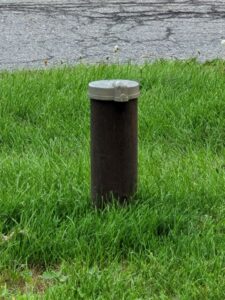Does small town water infrastructure seem to be working backwards? I have always wondered what caused the apparent “boom” of small towns adding municipal water as a utility between the 1950s and 1990s. In fact, if you look up the majority of the small town water systems in the area, they were built during this period. Where did all the money come from to tackle such massive endeavours? More importantly, why does it seem like we are now struggling to add additional water and sewer connections to existing and well‑established systems?
There is a polarizing debate that exists when it comes to water infrastructure, so much so that I refer to it as the “taboo” water issue. The debate is, should expanding towns like South Mountain have a municipal water system? The reason this topic is polarizing is because people who live with a private well either love it or hate it.
Wells provide “free” water but there is a tonne of maintenance costs, and when building a new home, a well is very expensive. The water is also typically safe to drink but it is not guaranteed safe, and it can be harder on appliances such as dishwashers and washing machines. Depending on the source aquifer, it can also have an unpleasant “rotten egg” smell. Some people love their well water for its natural taste, and despise the chlorine taste and smell of municipal water.
There are obvious benefits to municipal water. It’s guaranteed safe to drink, it works in power outages, and it comes with virtually no maintenance costs. However, it costs money, and as stated previously, some people simply don’t like it.
Who is right? There is no right or wrong answer. An opinion is an opinion. Some residents of North Dundas’ smaller villages will read this article and say “Don’t you dare put the bug in the Township’s ear about bringing water here! I’m not paying for that! Our water is fine! It’s better than anything the Township could offer!” Other people will read my words and think, “It’s about time someone gave as much attention to the smaller villages in North Dundas as what is routinely given to Winchester and Chesterville! Bring water now! I’m tired of rust stains and rotten egg smell!”
 Using South Mountain as an example, the new subdivision is filled with homes that have up‑to‑code wells, likely producing aesthetically good water. These wells were bought and paid for not so long ago, so subdivision homeowners are likely happy with the status quo, and not looking to “fix what isn’t broken”, so to speak. In contrast, a quick drive down Main Street reveals one major problem: barely any wellheads are even visible. A few decades ago, wellheads used to be buried to make yards more aesthetically pleasing. This is now a code violation as it makes the well susceptible to contamination. A lot of these older wells in the older part of the village are likely also experiencing quality and quantity issues because of their age. Some of these homeowners are likely wishing there was some way to have municipal water put through town.
Using South Mountain as an example, the new subdivision is filled with homes that have up‑to‑code wells, likely producing aesthetically good water. These wells were bought and paid for not so long ago, so subdivision homeowners are likely happy with the status quo, and not looking to “fix what isn’t broken”, so to speak. In contrast, a quick drive down Main Street reveals one major problem: barely any wellheads are even visible. A few decades ago, wellheads used to be buried to make yards more aesthetically pleasing. This is now a code violation as it makes the well susceptible to contamination. A lot of these older wells in the older part of the village are likely also experiencing quality and quantity issues because of their age. Some of these homeowners are likely wishing there was some way to have municipal water put through town.
How do you make a decision on such a big issue when opinions are so divided on whether or not it’s a good call? The only town in the area that has put in a new water system in the last 20 or so years is Maxville, a village that is approximately the size of South Mountain, but perhaps a bit larger. Residents there, at the time, were very divided. Many had begged for water to deal with well quantity and quality issues. Others were furious at having to pay some upfront costs for a utility they didn’t want. But the costs of a system can’t be justified if not everyone in a village takes the service. It’s a true quandary. Should people who need access to clean water suffer without it, or should people who already have access to decent water be forced to pay for better water to help those who don’t?
Before anyone blows a head gasket, let me be clear: my opinion on whether South Mountain (where I reside) should have municipal water is moot, at least in this decade. A township that can’t figure out how to stop stifling growth in its largest town through a lack of water access is not likely to start building entirely new water systems any time soon. But sometimes food (or water?) for thought is a good thing. Why were water decisions so easy 50 years ago, but are now so difficult today?

